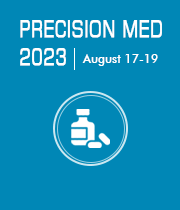Translational Informatics
The use of bioinformatics and statistical tools to investigate, synthesize, combine, and interpret data from laboratory research, clinical studies, electronic health records, imaging data, and other sources into valuable insights is known as translational informatics. Data-driven approaches to advancing the transfer of a compound, device, or intervention from the laboratory to the clinic are known as translational informatics. TI isn't just for bioinformatics or omic sciences, either. The potential of genomics and translational informatics to improve medication development and clinical applications. In the end, translational informatics is a large data issue. Because of the vast number of samples and the amount of data collected each sample, the data volume is enormous. What used to be a handful of genetic panels done on a small clinical study has exploded into massive databases thanks to the introduction of cost-effective sequencing. This extraordinary magnitude and volume necessitate the development of new tools and methods.
- Recent Biomarker
- Sequencing and Genomic Studies
- Data Integration
- Data Mining
- Statistical Analysis
- Preclinical Studies

Bernd Blobel
University of Regensburg, Germany
Roy Gary Beran
University of New South Wales, Australia
Matthias Schwab
University of Tubingen, Germany
Thomas Webster
Interstellar Therapeutics, United States
Boris Tankhilevich
Magtera, Inc., United States
Isabella Friis Jorgensen
University of Copenhagen, Denmark


Title : The use of anti seizure medication therapeutic blood level determination to personalise the treatment of epileptic seizures especially in patients attending the accident and emergency department
Roy Gary Beran, University of New South Wales, Australia
Title : Personalized and precision medicine (PPM) can be established as a unique healthcare model through biodesign-driven and inspired biotech, translational applications. This approach aims to ensure human healthcare, wellness, and biosafety.
Sergey Suchkov, Institute for Biotech & Global Health of RosBioTech and A.I. Evdokimov MGMSU, Russian Federation
Title : Monitoring folds localization in ultra-thin transition metal dichalcogenides using optical harmonic generation
Ahmed Raza Khan, Australian National University, Australia
Title : A systematic review of regulatory approaches for Direct- To- Consumers (DTC) genetic testing
Kavitha Palaniappan, Duke-NUS Medical School, Singapore
Title : Regulatory framework of in vitro diagnostic and artificial intelligence for precision medicine
Pei Ting Sarah Chou, Regulatory Affairs Professionals Society, Taiwan
Title : Unraveling cancer stem cell signatures in circulating tumor cells of metastatic colorectal cancer: Investigating ALDH1A1 and the repurposing potential of disulfiram via scRNA-seq
Nurul Syakima Ab Mutalib, Universiti Kebangsaan Malaysia, Malaysia